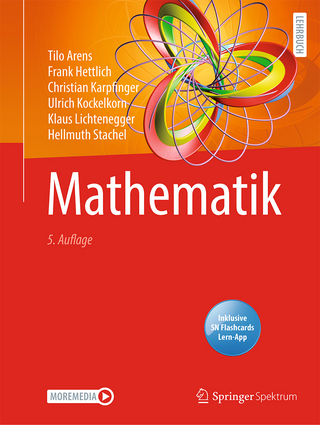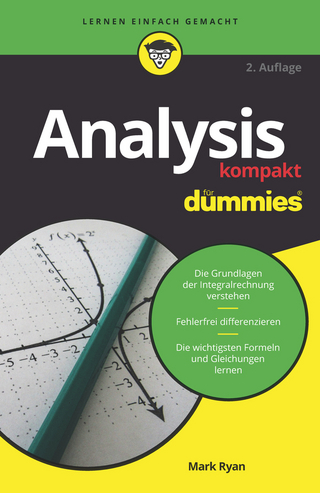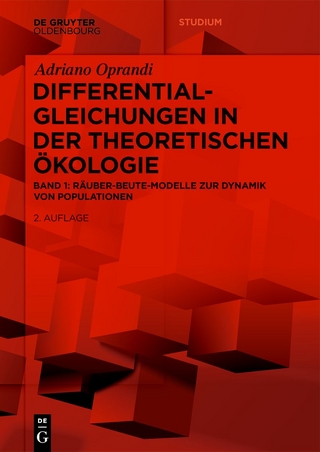
Mixed and Hybrid Finite Elements Methods
Springer-Verlag New York Inc.
978-0-387-97582-5 (ISBN)
- Titel ist leider vergriffen;
keine Neuauflage - Artikel merken
I: Variational Formulations and Finite Element Methods.- §1. Classical Methods.- §2. Model Problems and Elementary Properties of Some Functional Spaces.- §3. Duality Methods.- 3.1. Generalities.- 3.2. Examples for symmetric problems.- 3.3. Duality methods for nonsymmetric bilinear forms.- §4. Domain Decomposition Methods, Hybrid Methods.- §5. Augmented Variational Formulations.- §6. Transposition Methods.- §7. Bibliographical remarks.- II: Approximation of Saddle Point Problems.- §1. Existence and Uniqueness of Solutions.- 1.1. Quadratic problems under linear constraints.- 1.2. Extensions of existence and uniqueness results.- §2. Approximation of the Problem.- 2.1. Basic results.- 2.2. Error estimates for the basic problem.- 2.3. The inf-sup condition: criteria.- 2.4. Extensions of error estimates.- 2.5. Various generalizations of error estimates.- 2.6. Perturbations of the problem, nonconforming methods.- 2.7. Dual error estimates.- §3. Numerical Properties of the Discrete Problem.- 3.1. The matrix form of the discrete problem.- 3.2. Eigenvalue problem associated with the inf-sup condition.- 3.3. Is the inf-sup condition so important?.- §4. Solution by Penalty Methods, Convergence of Regularized Problems.- §5. Iterative Solution Methods. Uzawa’s Algorithm.- 5.1. Standard Uzawa’s algorithm.- 5.2. Augmented Lagrangian algorithm.- §6. Concluding Remarks.- III: Function Spaces and Finite Element Approximations.- §1. Properties of the spaces Hs(?) and H(div; ?).- 1.1. Basic results.- 1.2. Properties relative to a partition of ?.- 1.3. Properties relative to a change of variables.- §2. Finite Element Approximations of H1(?) and H2(?).- 2.1. Conforming methods.- 2.2. Nonconforming methods.- 2.3. Nonpolynomial approximations: Spaces Lks(Eh).- 2.4. Scaling arguments.- §3. Approximations of H (div; ?).- 3.1. Simplicial approximations of H (div; K).- 3.2. Rectangular approximations of H (div; K).- 3.3. Interpolation operator and error estimates.- 3.4. Approximation spaces for H (div; ?).- §4. Concluding Remarks.- IV: Various Examples.- §1. Nonstandard Methods for Dirichlet’s Problem.- 1.1. Description of the problem.- 1.2. Mixed finite element methods for Dirichlet’s problem.- 1.3. Primal hybrid methods.- 1.4. Dual hybrid methods.- §2. Stokes Problem.- §3. Elasticity Problems.- §4. A Mixed Fourth-Order Problem.- 4.1. The ?-? biharmonic problem.- §5. Dual Hybrid Methods for Plate Bending Problems.- V: Complements on Mixed Methods for Elliptic Problems.- §1. Numerical Solutions.- 1.1. Preliminaries.- 1.2. Interelement multipliers.- §2. A Brief Analysis of the Computational Effort.- §3. Error Analysis for the Multiplier.- §4. Error Estimates in Other Norms.- §5. Application to an Equation Arising from Semiconductor Theory.- §6. How Things Can Go Wrong.- §7. Augmented Formulations.- VI: Incompressible Materials and Flow Problems.- §1. Introduction.- §2. The Stokes Problem as a Mixed Problem.- 2.1. Mixed Formulation.- §3. Examples of Elements for Incompressible Materials.- 3.1. Simple examples.- §4. Standard Techniques of Proof for the inf-sup Condition.- 4.1. General results.- 4.2. Higher order methods.- §5. Macroelement Techniques and Spurious Pressure Modes.- 5.1. Some remarks about spurious pressure modes.- 5.2. An abstract convergence result.- 5.3. Macroelement techniques.- 5.4. The bilinear velocity-constant pressure (Q1-P0) element.- 5.5. Other stabilization procedures, (Augmented Formulations).- §6. An Alternative Technique of Proof and Generalized Taylor-Hood Element.- §7. Nearly Incompressible Elasticity, Reduced Integration Methods and Relation with Penalty Methods.- 7.1. Variational formulations and admissible discretizations.- 7.2. Reduced integration methods.- 7.3. Effects of inexact integration.- §8. Divergence-Free Basis, Discrete Stream Functions.- §9. Other Mixed and Hybrid Methods for Incompressible Flows.- VII: Other Applications.- §1. Mixed Methods for Linear Thin Plates.- §2. Mixed Methods for Linear Elasticity Problems.- §3. Moderately Thick Plates.- 3.1. Generalities.- 3.2. Discretization of the problem.- 3.3. Continuous Pressure Approximations.- 3.4. Discontinuous Pressure Approximations.- References.
| Verlagsort | New York, NY |
|---|---|
| Sprache | englisch |
| Themenwelt | Mathematik / Informatik ► Mathematik ► Analysis |
| Mathematik / Informatik ► Mathematik ► Arithmetik / Zahlentheorie | |
| Technik | |
| ISBN-10 | 0-387-97582-9 / 0387975829 |
| ISBN-13 | 978-0-387-97582-5 / 9780387975825 |
| Zustand | Neuware |
| Haben Sie eine Frage zum Produkt? |
aus dem Bereich


